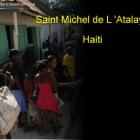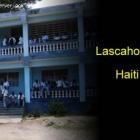Haitian-Dominican Republic Trade and Constitutional Court
ADVERTISEMENT
Both Haitian and DR businesspeople discussed a just-released study on trade impediments between the two countries. Import-export relations have been strained due to, in particular, Haiti's sanction against poultry products exported by the DR. The reason behind the sanction was an outbreak of bird virus in the DR, which was quickly contained. The government of Haiti (GOH), however, refused to rescind the ban, causing tension between the two governments.
Business representatives from both countries were in agreement trade sanctions be worked through by the Joint Haitian-Dominican Bilateral Commission (JHDBC) before government acts on issues of concern. They want clear bilateral communication instead of a rush to judgment, which can unnecessarily affect the business climate. To announce this agreement, Haitian Prime Minister Lamothe's office issued the JHDBC's statement of their agreement on nipping in the bud any such future trade issues, before they become unmanageable.
In the meantime, prior talks between Haiti and the DR on this issue recommended a two-pronged approach to lifting the ban on poultry products issuing from the DR. The first requires DR poultry inspectors to tighten inspection standards for determining if a bacterium is present in the meat. Once standards have been adopted and tested successfully, the ban should be lifted immediately.
But in contradiction to the governments' wrangling over this issue is the fact the ban is not effective to begin with. The shared border between Haiti and the DR is permeable, allowing smuggling of poultry to take place. DR poultry is readily available in the markets of Haiti, and no one--to anyone's knowledge--has contracted an intestinal infection. Haitian and DR businesspersons are in agreement they are losing profits as the smugglers gain from their losses, all due to GOH's rash response.
A side issue, but nonetheless potentially driving a wedge between DR and GOH relations, is the DR Constitutional Court's ruling that threatens a mass migration of Haitians, born in the DR, being deprived of their citizenship status. Many are of mixed Dominican-Haitian parentage. The ruling will be applied retroactively back to 1922.
An irony exists in the DR wanting to motivate a mass exodus of Dominican-born Haitians. Originally, the DR imported Haitians to work the farms. But now DR claims their resources are strained, and they can no longer afford to keep tens of thousands of Haitians as citizens of the DR.
Haitian businesspeople dealing with their DR colleagues in the non-political environment of the Kiskeya CEO Summit, prevailed on DR business leaders to call on their government to let them know the repercussions of the Court's ruling would negatively affect the business climate of both nations.
Read more: Dominican Republic, business, Court, International
« Increase in Border Patrols to Reduce Smuggling, Collect Revenues | Main | Will Haitians in Dominican Republic have to pronounce "Perejil" all over again? »
Leave a Reply
Name (required) E-mail (required, will not be published)
» »
Our objective is to share with you news and information about Haiti and the people of Haiti. Traditions, habits and the way we were or grew are alive in this site. We highly recommend that you Subscribe to our Newsletter and also share with us some of the things that are memorable and made us unique people.


 Verrettes, Haiti
Verrettes, Haiti  La Chapelle, Haiti
La Chapelle, Haiti  Saint Michel de L 'Atalaye
Saint Michel de L 'Atalaye  Saint Marc, Haiti
Saint Marc, Haiti  Lascahobas, Haiti
Lascahobas, Haiti